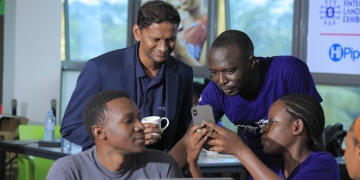Just released, this edition of BuddeComm report outlines the latest developments and key trends in the telecoms markets.
MTN in March 2020 renewed its National Telecom Operating licence for a further ten years, paying $100 million. Under the revised licensing regime, Airtel Uganda also fell under the NTO license regime on the grounds that it provided two-thirds geographic coverage. Given that Airtel at the time was paying only $100,000 to offer services under the cheaper PSP and PIP licences (to its obvious advantage), MYN and Uganda telecom complained. To level the playing field, Airtel was moved to a 20-year NTO licence in December 2020 (effective from the previous July). As part of the licence terms, the company must provide 90% geographic coverage by mid-2025.
Lycamobile Uganda, which had launched services in April 2020 after having acquired the local TD-LTE operator Tangerine in the previous January, was given an NTO licence in May 2021, making it the fourth operator in the country so licensed. Similar to Airtel, Lycamobile must extend geographic coverage and must also list 20% of its shares on the local exchange by mid-2022.
In line with these licensing requirements, MTN Group completed an IPO for its Uganda unit in October 2021, though it only managed to sell 60% of the 20% stake on offer, raising UGX535.9 billion. As a result of the IPO, the Group’s interest in MTN Uganda fell to about 83%. In the following December, the Group proceeded with listing its 22.4 billion ordinary shares on the Uganda Securities Exchange.
While these events have been ongoing, the economic consequences of the pandemic contributed to the exit of Africell in October 2021.
Key developments
MTN Group completes IPO of its Uganda unit; Lycamobile Uganda is awarded the country’s fourth National Telecommunications Operator (NTO) licence;
MTN Uganda trials standalone 5G, receives additional spectrum in the 1800MHz and 2100MHz bands;
Liquid Intelligence Technologies expands reach of FttP services;
Alphabet drops Project Loon;
Smile Telecom inks restructuring deal;
Airtel aims to list Ugandan unit on the Uganda Stock Exchange by end-2022;
Government pursues the Digital Uganda Vision, develops a broadband infrastructure blueprint
Ministry of ICT and National Guidance announces a funding shortfall of UGX242.55 billion for FY2022/23;
Africell exits from Uganda market amid competitive pressures, SEACOM will acquire some of the telco’s infrastructure assets;
Report update includes the regulator’s market data to end-2021, operator data to Q1 2022, updated Telecom Maturity Index charts and analyses, recent market developments.
Companies mentioned in this report
Uganda Telecom (UTL, LAP Green), MTN Uganda, UMEME, SEACOM, Infocom (Altech, Liquid Telecom), Internet Solutions, MTN Uganda (Telia), Bharti Airtel (Zain, Celtel), Uganda Telecom (UTL, LAP Green, Telecel, Orascom, Deutsche Telekom), Warid Telecom (Essar), Orange Uganda (HiTS Telecom), i-Tel, Simba Telecoms, Standard Chartered Bank, Monitise, American Tower Corporation (ATC), Eaton Towers, Smile Telecom, Smart Telecom, Sure Telecom, K2 Telecom, Africell (Lintel), UTL Online (Uganda Telecom), Infocom (Altech), Africa Online, Spacenet, MTN, Wateen Telecoms (Warid), Smile Telecom, Foris Telecom, Talk Telecom, Mo Telecom, Goal Technology Solutions (GTS), UMEME, WBS Television, NTV Uganda, MultiChoice
















